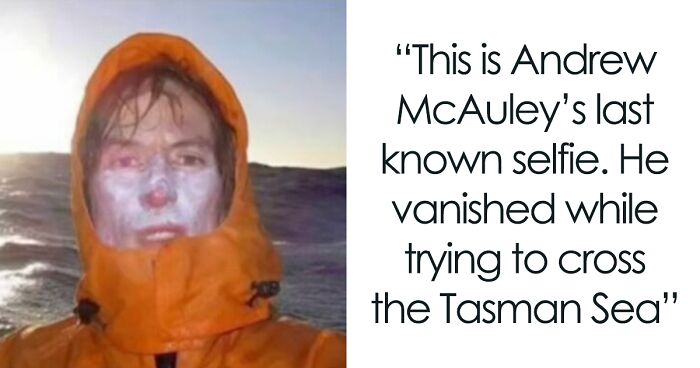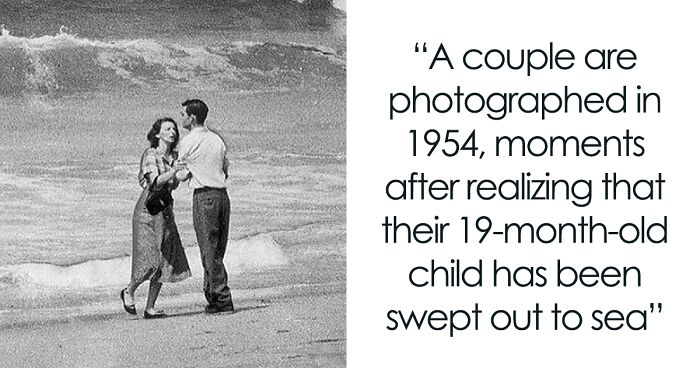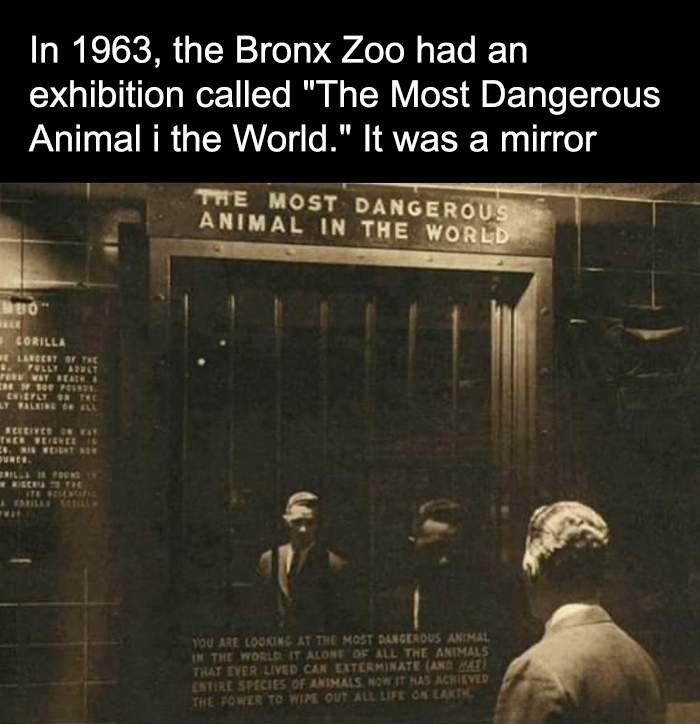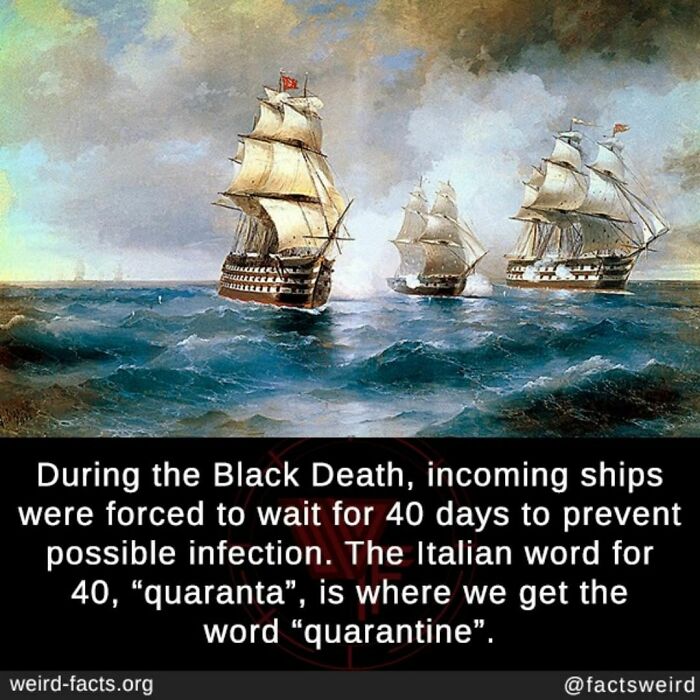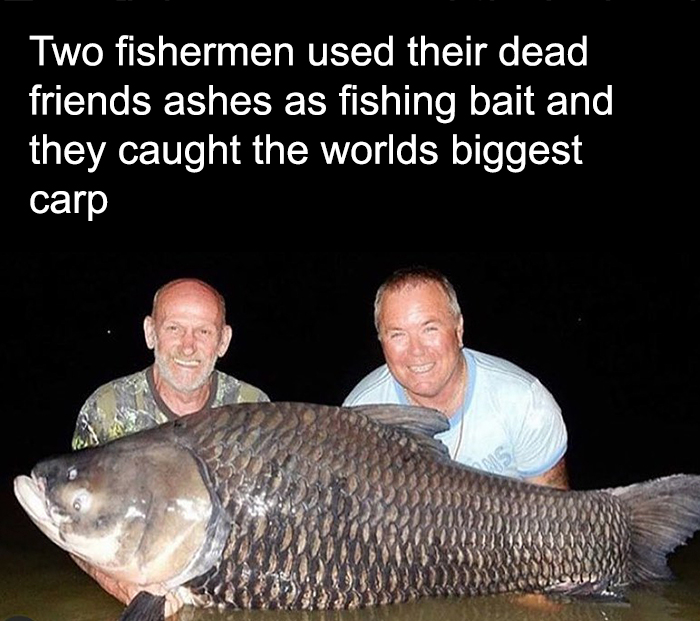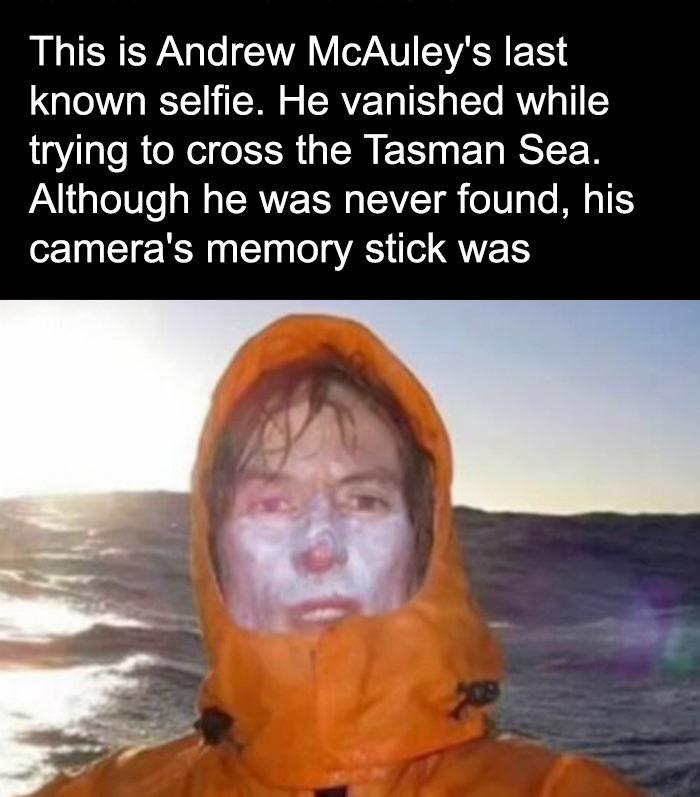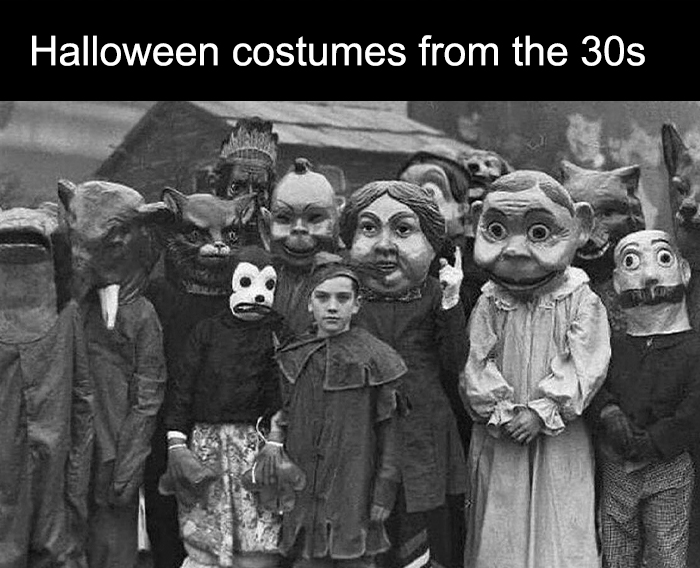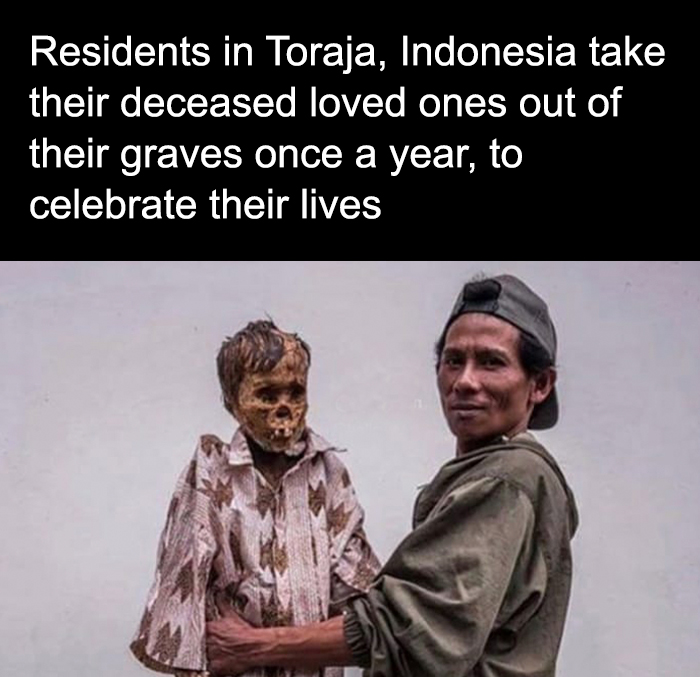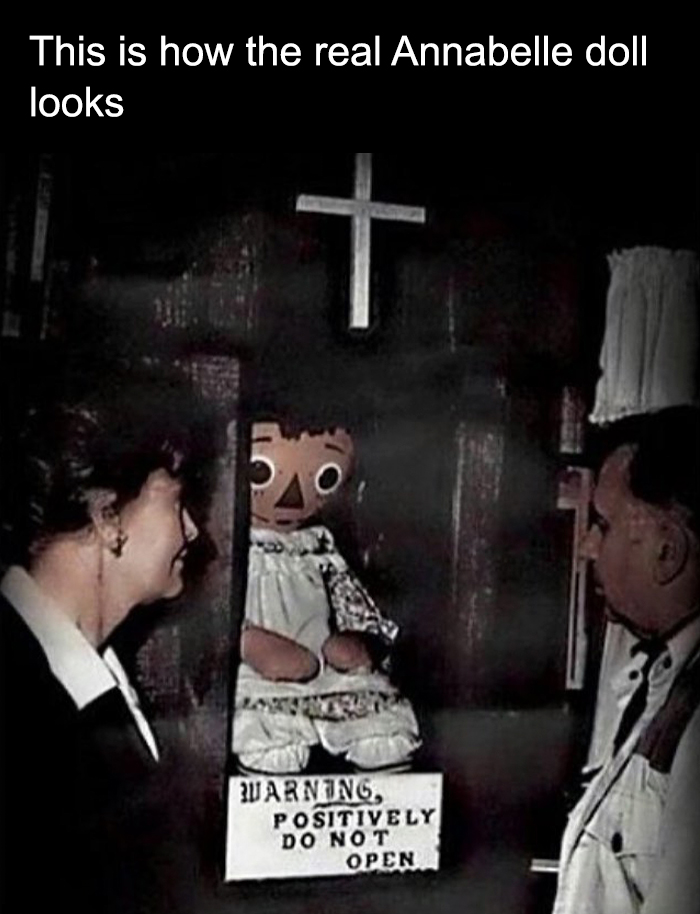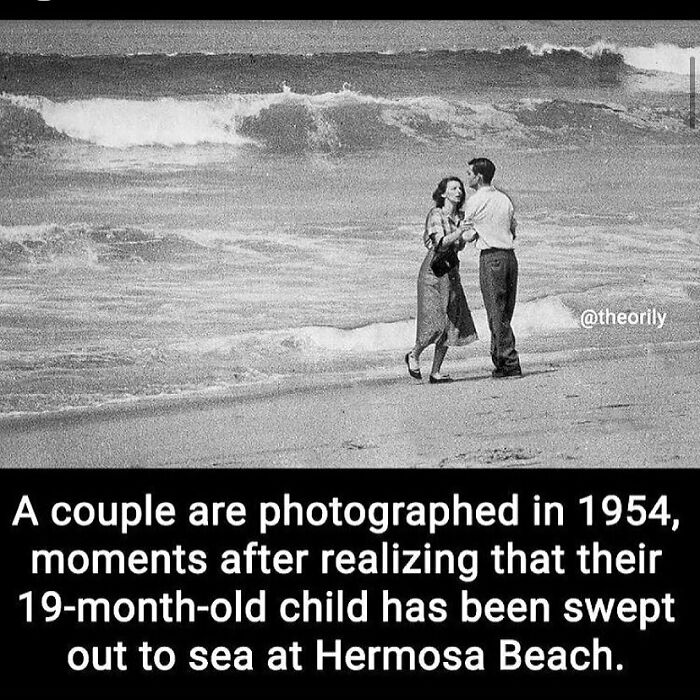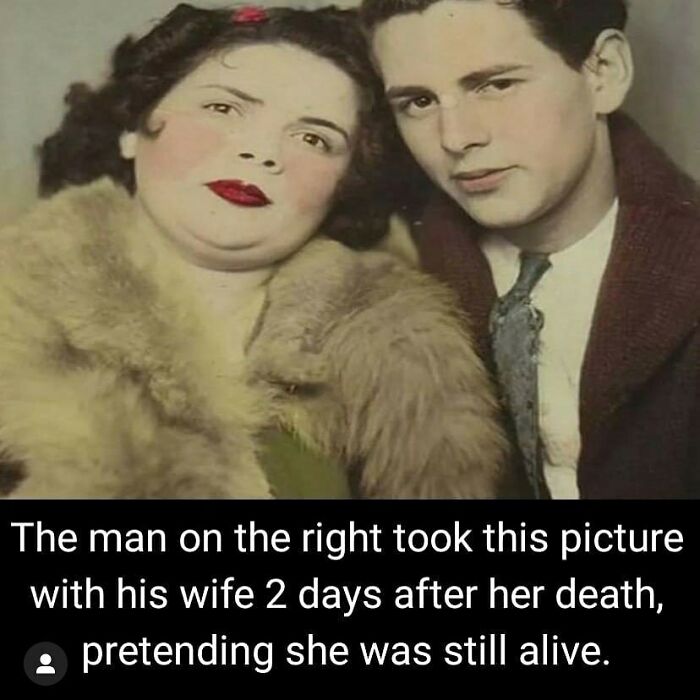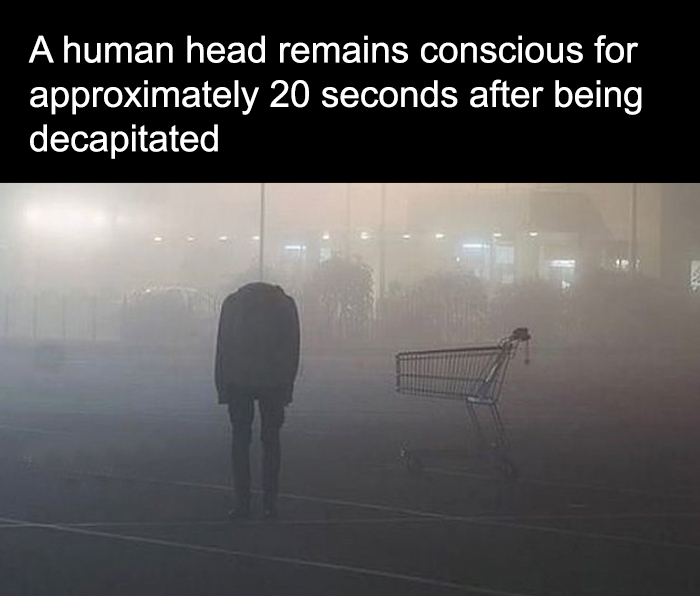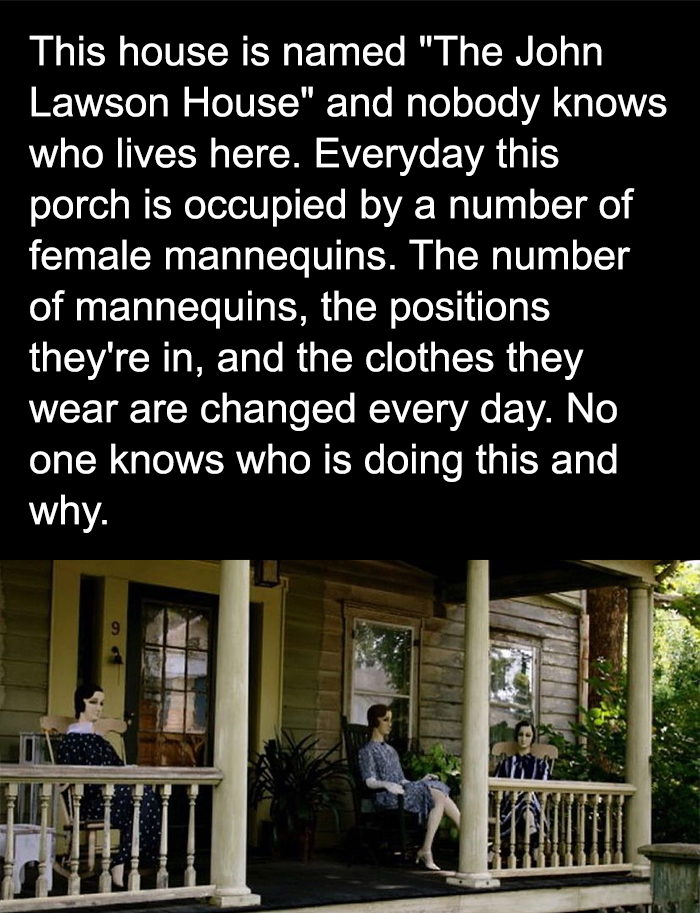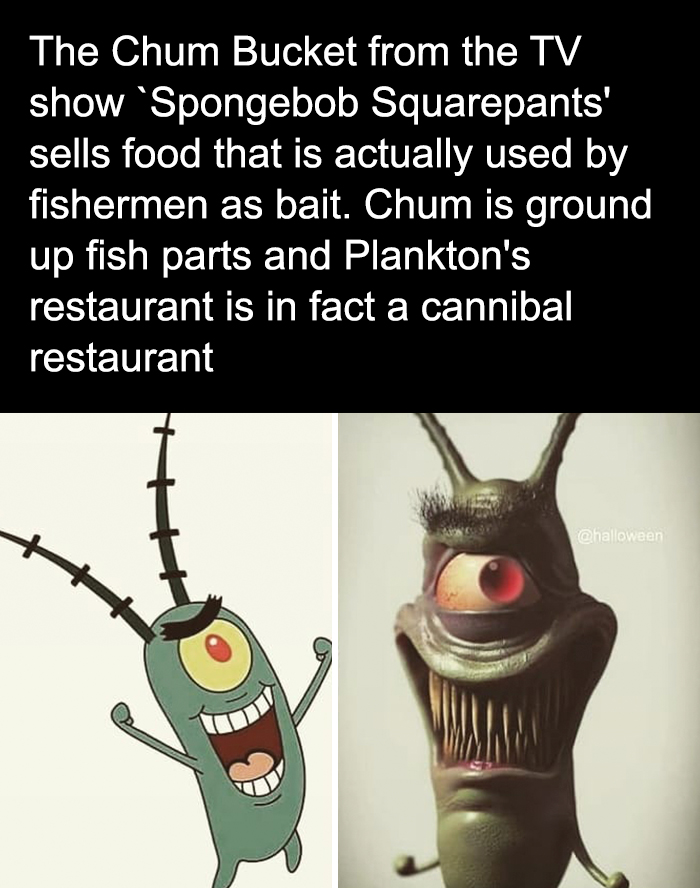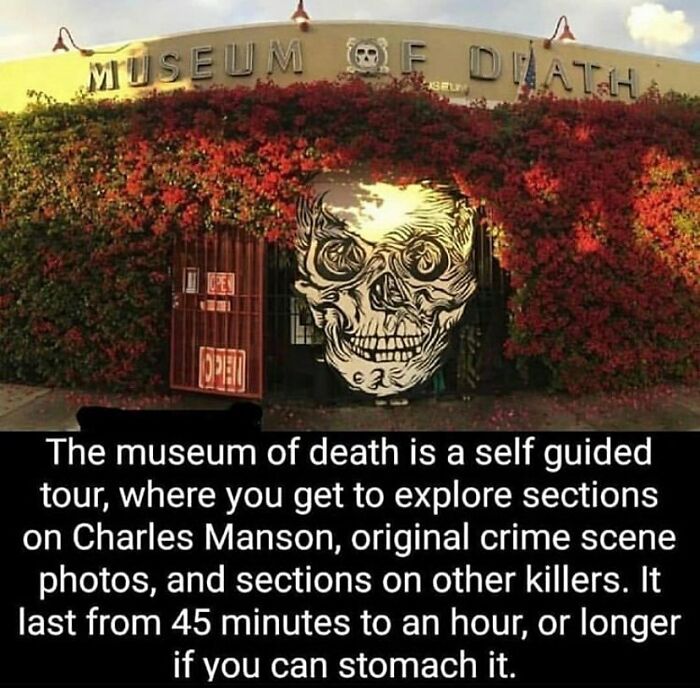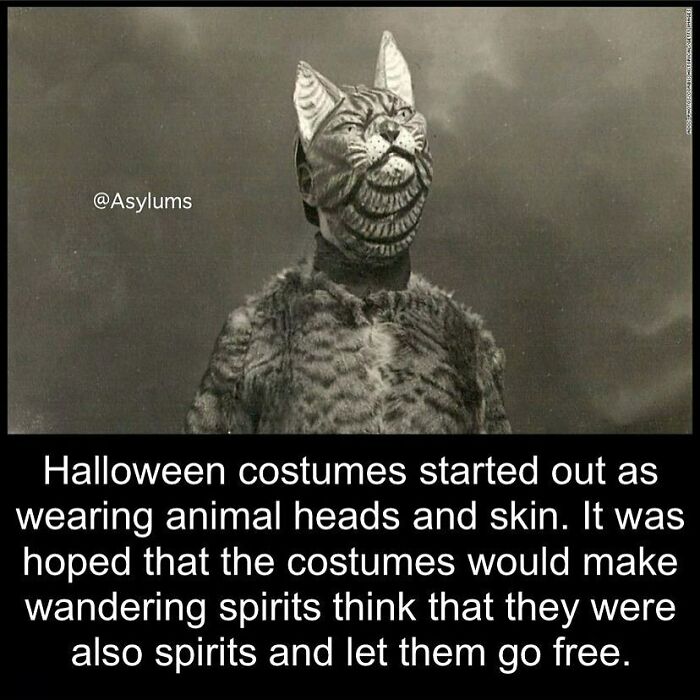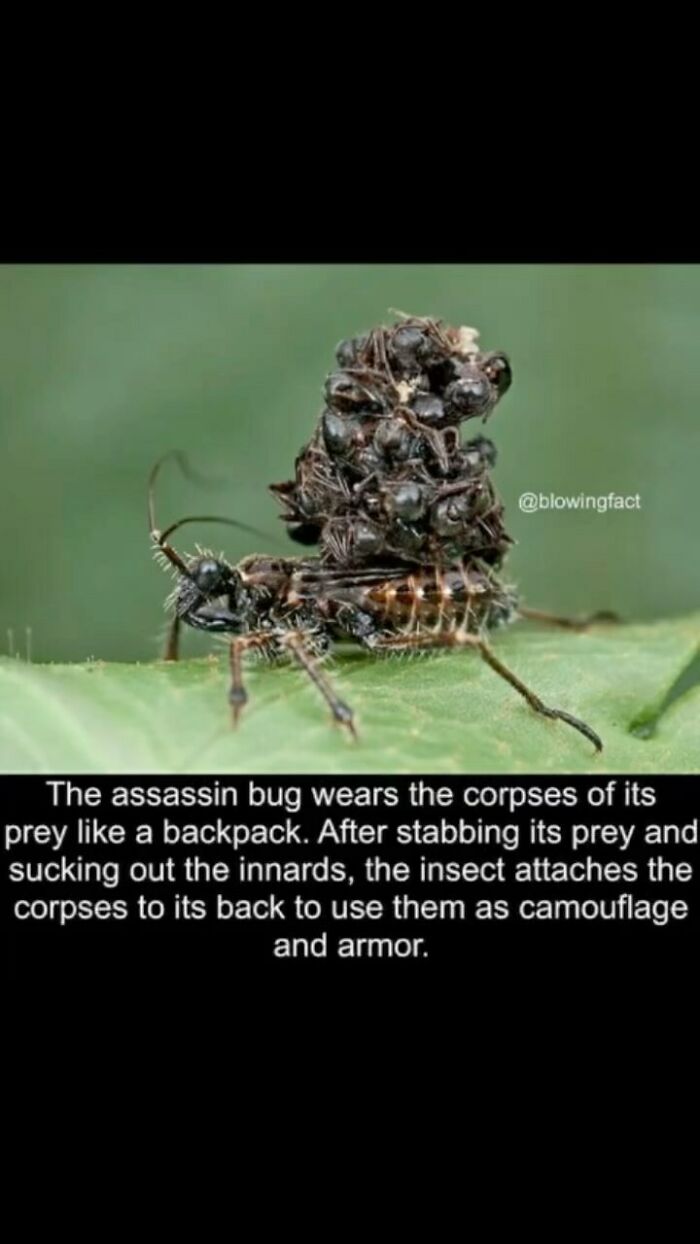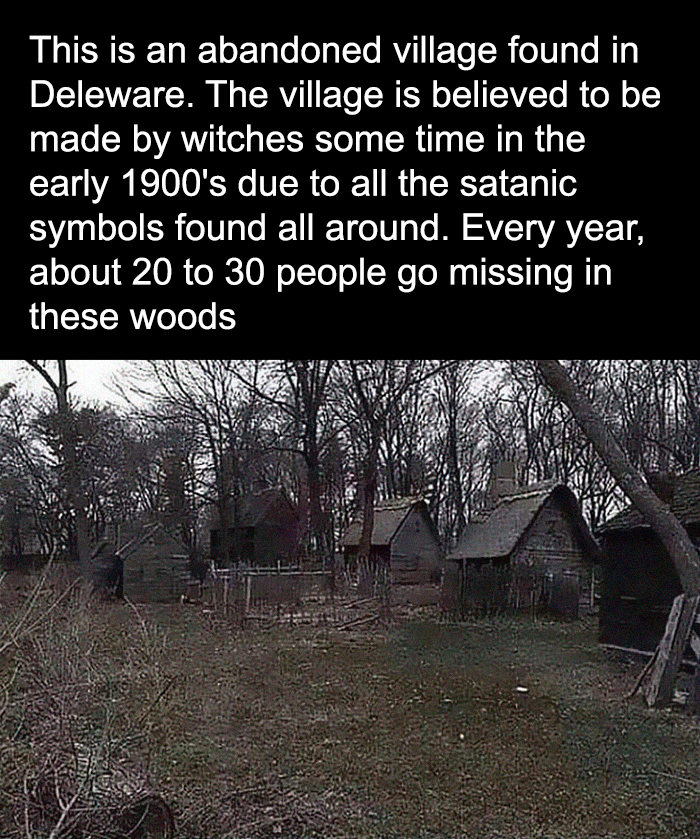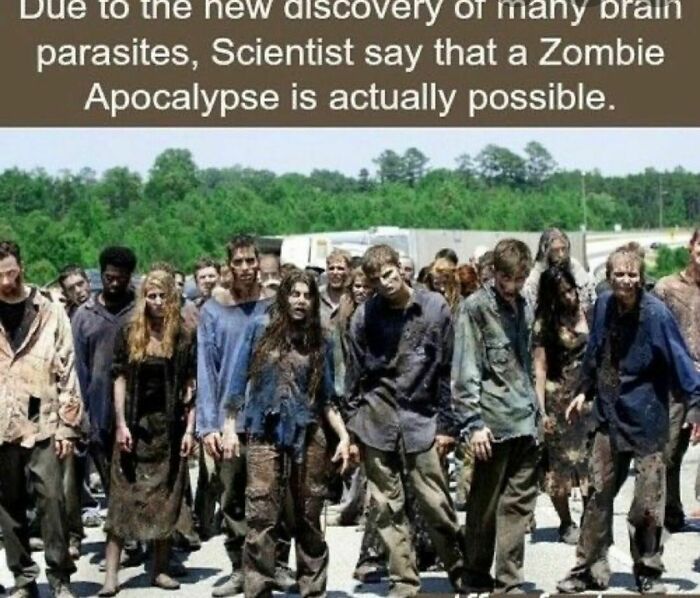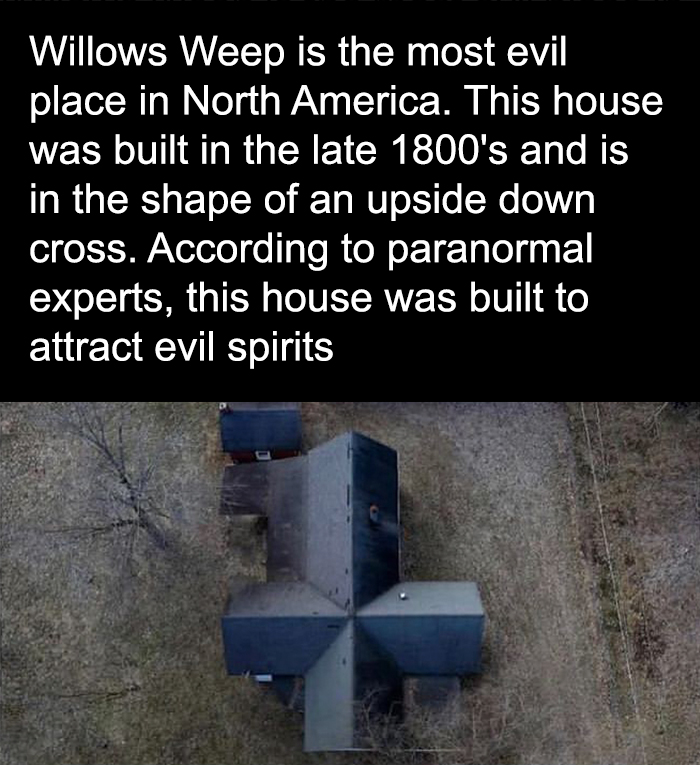We love a good horror film as much as the next person, but there’s something about knowing the story is fictional that makes it a tad bit less frightening. We have no reason to actually fear Pennywise the Clown or Freddy Krueger because we know they’re not real (or at least that’s what we remind ourselves). But if someone tells us a scary story about a paranormal experience one recently had or throws out some creepy facts, we’ll be sleeping with the lights on for weeks.
But we know y’all secretly love scary facts, dear pandas. And if you’re interested in expanding your knowledge of the dark and disturbing, you’re in luck. Today, we’re listing some of the creepiest and most terrifying facts shared on the Horror Facts Instagram account. From disturbing film trivia to photos of real-life nightmares, this list is full of photos that might make you want to turn the lights on before heading to bed tonight.
Keep reading to find an interview we were lucky enough to receive from horror expert and creator of the Knifepoint Horror podcast, Soren Narnia. Be sure to upvote the photos that have you feeling spooked, and feel free to share any more creepy facts you know in the comments section.
This post may include affiliate links.
Speaking of sleeping with the lights on, one of the creepy facts about dreams is that you are paralyzed while dreaming to prevent you from acting out your dreams. You can also experience nightmares while you are awake, in the form of hallucinations that can scare you with things that aren't real.
Text at bottom of sign reads: "You are looking at the most dangerous animal in the world. It alone of all the animals that ever lived can exterminate (and HAS) entire species of animals. Now it has achieved the power to wipe out all life on Earth."
Everyone says truth is stranger than fiction, but did you know that truth is also scarier than fiction? Don’t get us wrong, Stephen King is our favorite writer, too, and the film adaptations of his stories are always incredibly captivating.
But they don’t usually make us feel unsafe in our homes or unsettled while walking home in the dark. However, some horrifying facts on this list might make us walk a little faster with the keys between our fingers.
The Number One Site for Scary Facts
The Horror Facts Instagram page says it’s been rated the number one scary page on the site, and for good reason. The account has amassed nearly 83K followers and posted almost 1.5K pics featuring spooky, disturbing, and creepy facts.
And while information about scary encounters that happen today can be circulated online incredibly fast, spooky facts about historical figures or Halloween traditions of generations ago might not always be common knowledge.
So, suppose you devour every documentary Netflix makes about serial killers and unsolved mysteries. In that case, this creepy, fun fact list might provide you with some inspiration for what to scour the internet for information about next.
Sad to have to put herself through that, though. If you hear something often enough, you believe it.
Behind the Mic of the Knifepoint Horror Podcast
To gain insight for this article, we contacted a real-life horror enthusiast, creator, producer, and performer of the Knifepoint Horror podcast, Soren Narnia. When it comes to what inspired Soren to create this spooky show in the first place, this is what he told Bored Panda:
“I started my podcast mostly as a way to work around the gatekeepers and bring the stuff I’d written directly and easily to an audience. What I’ve come to like most about it is the sense of giving someone a lift during their day, bringing a little comfort food into a rough world—and one thing I’ve learned is that horror can totally be comfort food.”
He also explained what kind of spooky stories he likes to share on the podcast: “All my stories are fictional, but the fears I write about are always very real,” Soren explained. “I’m trying to come up with a slightly different take on traditional horror tropes every time, and unless I think of that new take, I try not to write at all.”
Soren also shared: “I think maybe my favorite story I’ve done in recent years might be ‘The Smoke Child,’ which is about an old legend possibly/maybe emerging into the modern day to wreak havoc,” Soren shared. “It’s got plenty of fear-of-what’s-out-there-in-the-dark stuff, which is the only really scary thing I’ve experienced personally—the very traditional and ever-persistent trepidation of not knowing what the dark holds.”
Soren Narnia’s Insight into the Love for Horror Stories
We were also curious about Soren’s take on why we’re so drawn to horror stories. “I’m 90% certain the reason we love horror is because it gives us a safe brush with death that we can jump back from safely and laugh about later. If that’s not the reason, then the human mind is even stranger than I think,” he told Bored Panda.
Soren is also a fan of haunted houses, so if any of you pandas out there stage haunted house attractions, take note. “I have to say I’m totally digging three things: The laser effect that makes it seem like you’re up to your waist in mist; anytime you have to walk through the interior of a spooky bus; the rotating tunnel effect, which messes with my balance every time. But can we give clowns an amnesty for just one year, maybe...?”
If you’re looking for something frightening to listen to to get in the spooky season mood (or all year round!), be sure to check out Soren’s podcast Knifepoint Horror.
If you are revolted by this DO NOT read his Wikipedia page. I was genuinely sick after researching this guy for a project I did on psychopaths. Edit: It's been three days since I posted this and every day I come back multiple times to read the comments and I must say you guys really make me LOL. I just love the Panda community, all of you 😍
The Psychology Behind Our Love for Horror
Most of us don’t go out seeking horrifying experiences in our daily lives. Still, when it comes to the media we consume, many of us love true crime documentaries that are too unbelievable to be true and horror films that scare us to turn out the lights.
Just look at the Jeffrey Dahmer series that hit Netflix and soon became the streaming site’s second-most-watched series ever. But why do we have such an insatiable appetite for spooky stories and scary facts?
According to psychologists, several common explanations exist for why we are drawn to the scary and unsettling. Horror scholar Mathias Clasen believes that part of our fascination can be traced back to the fact that our ancient ancestors experienced constant danger in the environments that they lived in.
They were required to always be vigilant to stay alive, allowing us to evolve with excellent threat-detection systems. While most of us don’t encounter real threats daily, it can be fun to stimulate that ancient part of us that did and live vicariously through other characters. We might enjoy considering how we would react in their situations and wondering if we could make it out alive.
Pfft, the middle one tho..."For Halloween, I shall dress as my Aunt Martha... she's the scariest person in existence."
How Are We Affected by the Horror Media?
One of the earliest psychological theories used to explain why we love being scared so much is Dolf Zillmann’s excitation transfer theory. Essentially, this theory states that horror media increases our levels of physiological arousal due to the fear that it causes, and then after the viewing experience has ended, the relief we experience causes a euphoric high. There are studies to confirm this theory as well, at least for men.
According to Glenn G. Sparks’s article “The Relationship Between Distress and Delight in Males’ and Females’ Reactions to Frightening Films,” the more distressed male viewers became while watching a scary movie, the happier they felt after finishing the film. Catharsis is a powerful thing, and if you’ve been sitting in a movie theater building up tension for two and a half hours, it might feel pretty good to finally know that you made it out safely and unscathed and you have nothing to fear anymore.
Other Reasons Why We Love Horror
Another potential reason we love horror is the idea of exploring the dark side of humanity. We are naturally curious about what we don’t understand, and it can be fascinating to hear a story that is so disturbing we could have never dreamed it up ourselves.
Stories of ghosts, ghouls, murderers, and evil in general are captivating because, thankfully, most of us have no experiences with those things in real life that lead us to believe we should actually be scared of them. They don’t usually feel real; they just feel excited.
nowadays we'd pick this up on a scan and offer the mom an option or two. Unless of course you live in a third world state like florida.
People React to Horror Differently
Not everyone is equally excited by horror stories and scary facts, though. Some of us are more drawn to frightening tales than others. Usually, people high in sensation-seeking are likelier to enjoy a horror film than those who often avoid novel, risky, or intense experiences.
People with lower empathy levels also usually appreciate a horrifying tale more than those who are highly empathetic. That doesn't mean that empathic people hate scary movies or that only psychopaths like watching them, but the experience of seeing a frightening film can be more painful for people who quickly put themselves into the characters’ shoes.
The purpose of this is to allow humans to end their suffering if they are terminally ill. This is not frivolous at all. We "put animals to sleep" when they have something terminal and/or are suffering incurably. The argument from the relevant advocacy groups says that humans should have the same right, viz., to die with dignity. Personally, if I had pancreatic cancer, I'd be happy to get a fast way out.
Where did they get them? Who were they? Did the familys of the deceased know?
Horror Media Can Help to Cope With Stress
Contrary to what many might assume, consuming horror media can be therapeutic. According to one study, people who frequently watched horror movies were less psychologically distressed by the pandemic.
People who were fans of the apocalyptic horror subgenre also felt more prepared for the additional waves of pandemic. Apparently, people who are familiar with being exposed to horror and fear develop the ability to cope with stressful and anxiety-inducing situations.
The Excitement of Being Scared, According to Neuroscience
According to Irving Biederman, a specialist in cognitive neuroscience and a Professor of Neuroscience at USC, being scared can be exciting and addictive. “We like novelty, something that departs from our everyday experience,” he told USC News. “Some of the attraction of being scared comes from the deviation of having a new experience that we know is safe.”
But we have to understand that what we’re witnessing isn't real. Otherwise, we won’t gain any enjoyment from it. “Your amygdala will give you a fear response, an avoidance response to stay away from something legitimately frightful,” Biederman explained. “So, for a child, going to one of these haunted houses could be truly scary.”
The Modern Manifestations of Our Fears
What we find most frightening also provides some insight into our societies. Tok Thompson, an anthropology and communication associate professor at USC Dornsife, explained that each generation and culture will create monsters most relevant to their fears. “There’s an interesting role these monsters play in shaping our cultures,” he told USC News.
“And people are constantly reinventing these stories to talk about what they fear and are haunted by,” Thompson notes. In recent years, evil robots and internet monsters, like Slender Man and shows like Black Mirror, have been on the rise. “When these new monsters come up, that shows you people aren’t too sure about some of this new technology, that maybe there is something to be frightened about.”
I used to die all the time in dreams as a kid. I could tell because everything went black and then a narrator would helpfully inform me that I was dead. This was not particularly comforting.
Only cannibalism if it's the same species of fish as it's served to. After all, some birds eat other birds and some fish eat other fish. I'm yet to see a goat eat a sheep though. And goats eat ANYTHING.
My theory is that he got neglected or abused by his parents. Was taken away by CPS (because his nails and hair were cut) but the parents fought to get him back home. They than hit him until his skull broke. Considering the bloat on his hands and feet they treid to drown his body but because of the gassing it didn't work so they hid him in the forest. The parents saw the news but didn't have any care to say it's their child. They didn't say it's theirs because the investigators would have eventually found out that the parents killed him.
It is difficult to explain in a few lines, but effectively: photons are NOT influenced by time because they are traveling AT light speed. See this quite readable article: https://www.forbes.com/sites/startswithabang/2016/09/30/how-do-photons-experience-time/
Half of the "facts" in this article were either lies or misinformation. Many of these statements were already proved to be false. If only the author of this article did some more research.
Yup. The Red Room one in particular is a common urban legend that anyone who has ever used the dark web before can confirm is just impossible with current technology.
Load More Replies...Dear BP, I appreciate your work in providing those nice lists of entertainment more or less regardless of topic. However when you present these entertaining bits as facts it would be prudent to do at least SOME checking if those facts are actual facts and the provided details factually correct. I guess if you find the individual entry to be wrong but too good to pass you could still bring it with a respective editorial note to be incorrect.
BoredPanda used to write a lot of their won listicles and articles in the past, unfortunately, they seem to be following in the steps of Buzzfeed and copying-and-pasting content from Reddit without actually editing it let alone reviewing it for accuracy.
Load More Replies...Why did I scroll to the end of this article? 😳 Enough internet for today.
Love the spelling of your first name. How do you pronounce it?
Load More Replies...I am so oblivious. So gullible. I believed all of these (except the ones the comments said were wrong). And now I don’t know what to believe.
The fact that they aren't true, does that bother you because they AREN'T true?
who else came here shopping for some good old fashioned nice refreshing P A I N
Half of the "facts" in this article were either lies or misinformation. Many of these statements were already proved to be false. If only the author of this article did some more research.
Yup. The Red Room one in particular is a common urban legend that anyone who has ever used the dark web before can confirm is just impossible with current technology.
Load More Replies...Dear BP, I appreciate your work in providing those nice lists of entertainment more or less regardless of topic. However when you present these entertaining bits as facts it would be prudent to do at least SOME checking if those facts are actual facts and the provided details factually correct. I guess if you find the individual entry to be wrong but too good to pass you could still bring it with a respective editorial note to be incorrect.
BoredPanda used to write a lot of their won listicles and articles in the past, unfortunately, they seem to be following in the steps of Buzzfeed and copying-and-pasting content from Reddit without actually editing it let alone reviewing it for accuracy.
Load More Replies...Why did I scroll to the end of this article? 😳 Enough internet for today.
Love the spelling of your first name. How do you pronounce it?
Load More Replies...I am so oblivious. So gullible. I believed all of these (except the ones the comments said were wrong). And now I don’t know what to believe.
The fact that they aren't true, does that bother you because they AREN'T true?
who else came here shopping for some good old fashioned nice refreshing P A I N

 Dark Mode
Dark Mode  No fees, cancel anytime
No fees, cancel anytime 





